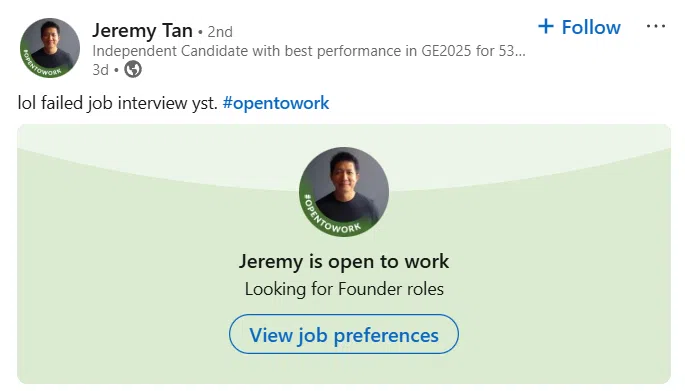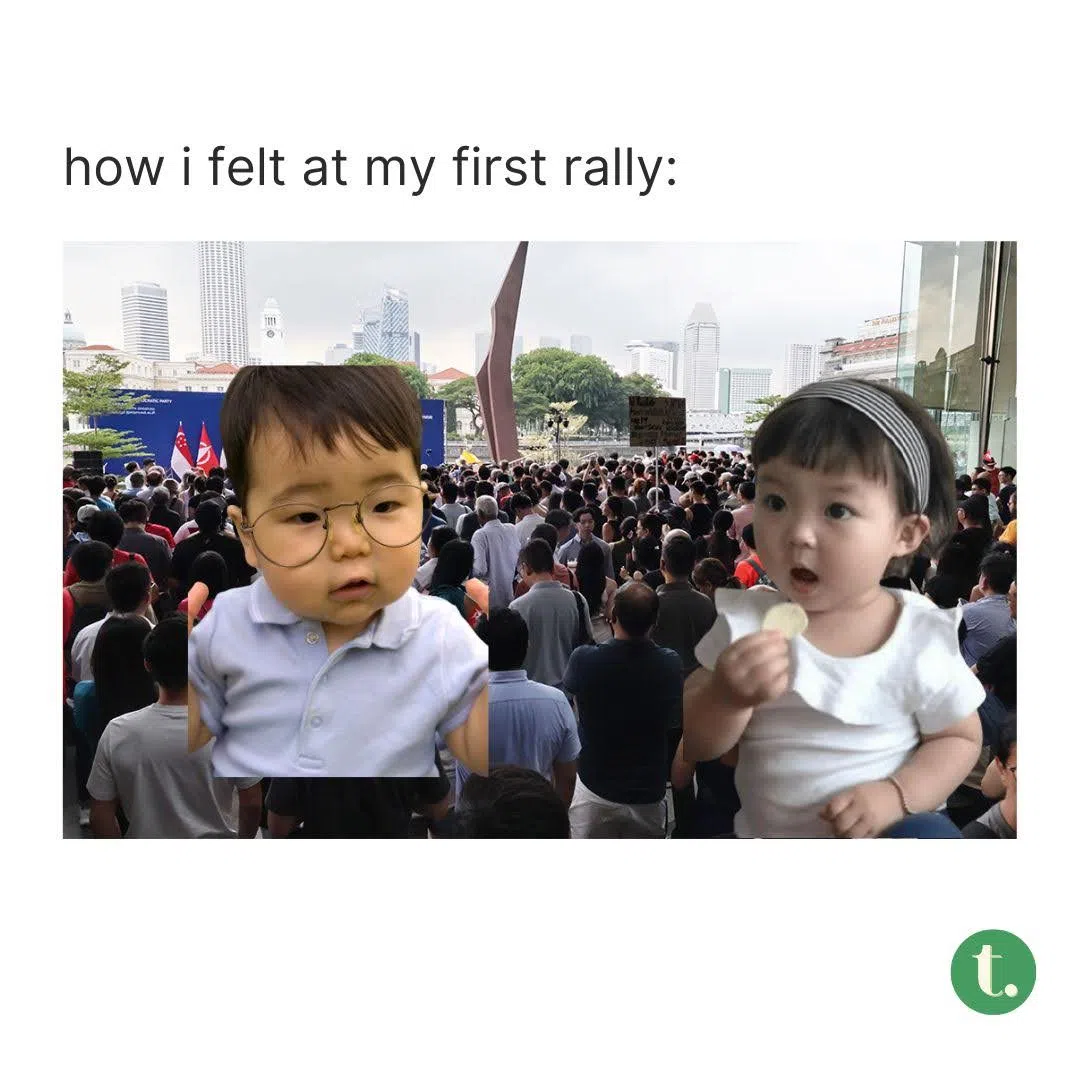💭 A young voter’s reflections on GE2025

Straight to your inbox. Money, career and life hacks to help young adults stay ahead.
[SINGAPORE] Before candidate Alexis Dang could utter a single word at a Workers’ Party (WP) rally, shouts of “chio bu” (A crude Hokkien phrase meaning attractive woman) could be heard.
Another candidate, Red Dot United’s Liyana Dhamirah, revealed she had been subjected to “racist and sexist” abuse online, prompting her to file a police report.
A few days ago, I came across a post by an old classmate who commented that WP had fielded good-looking candidates to sway voters who otherwise wouldn’t have cared less about politics.
I spoke to him about why I felt uncomfortable reading the post: a list of names he used to reinforce his point – all women candidates from recent and past elections.
The reality of being in politics as a woman is that whenever you’re introduced, you aren’t just a candidate, but a female candidate.
After the 15th Parliament is sworn in, women MPs will make up 31 of the 97 elected seats.
Navigate Asia in
a new global order
Get the insights delivered to your inbox.
We should laud parties that try to close this gap by fielding more women candidates. But to mature as a society, we should judge these candidates by their own merits, the same way we do male candidates.
The same goes for candidates from minority groups. Too often, people tend to pigeon-hole them as single-issue candidates just because they represent a racial group or community and have spoken up for them, forgetting that they have also raised other issues of national importance.

🩸 Rejection of minor parties
It’s commonly said that around 30 per cent of voters will vote for the opposition, no matter the candidate. Such votes are sometimes regarded as protest votes – not an endorsement of any candidate, but a show of disapproval for the government.
That didn’t play out in this election, with the PAP winning more than 75 per cent of the votes in several constituencies.
In multi-cornered fights, voters showed a clear preference for one opposition party over the other, with 27 candidates losing their election deposits, totaling S$364,500.
Many have pointed out that voters have become more discerning and aren’t voting for the opposition for the sake of opposing the PAP.
Indeed, a few friends voting in their first or second GE told me they would have given more thought to their votes had a stronger opposition party contested their ward. They didn’t want to waste their votes on a party they didn’t think was serious.
Could this be the death knell for the minor parties, whom voters in this election have decided to collectively refer to by a particular buzzing, blood-sucking nickname?
Or are the results simply a reflection of voters sticking to familiarity in times of global turmoil, like in recent post-Trump elections in Canada and Australia where voters swung towards the incumbent?
Yet despite the national swing towards the ruling party, the two first-time independent candidates pulled off an impressive showing with vote shares higher than most of the minor opposition parties that have been around for years.
What they lacked in party resources, they made up for with apparent sincerity and fresh ideas, which discerning voters rewarded.

📢 Rallies
Attending physical rallies for the first time, I finally felt first-hand the excitement and energy of the crowds. I watched as politicians let loose, making impassioned speeches complete with clever wordplay and the occasional jabs at their rivals.
It also reminded me of what senior colleagues and experienced rally-goers have prepared me for.
WP rallies will be packed, while others will draw smaller crowds. More importantly, crowd sizes aren’t an accurate measure of poll results, though it’s easy to forget that when you’re struggling to exit a school field surrounded by zealous supporters continuing to chant long after the speakers have left.
Hardcore supporters aside, I was heartened seeing other young Singaporeans curious about politics, gasping or turning to their friends whenever a speaker brings up a topic they’re unfamiliar with.
As members of a democracy, we have a responsibility to stay well-informed and have that guide our choices at the ballot boxes, and I hope that curiosity to learn lasts beyond the nine days of campaigning.

😕 Don’t put down others who voted differently
Since the results, many have made mocking comments about others who voted differently from them. Others have made outrightly berated voters, wishing misfortune on them.
The subtext of these remarks are clear – that we’re the morally and intellectually enlightened ones and the others are too selfish or too gullible to cast the correct vote.
People vote based on their lived experiences and according to what they believe is right. Their priorities and considerations may be different from yours, but equally valid.
Talk to people outside your bubble and understand their fears and hopes – even if you don’t share them. If you believe in democracy, you can’t accept the outcome only if the party you support wins.
🕊 My hope for the next five years
In one video released during the campaign, Prime Minister Lawrence Wong spoke directly to Gen Z voters.
He rejected naysayers who dismissed the younger generation as too “soft” and “full of themselves”, saying that they miss the full picture.
It struck me because these are the same values that thrive stands for – that young people have high standards because that’s how things should be; that we aren’t overly-sensitive and are standing up for beliefs that are beyond our own needs.
In the video, Wong says: “Your generation embodies a new desire to not settle for the status quo and with the way the world is moving. We hear you. I hear you.”
With the strong mandate he has gotten, I’m looking forward to him delivering on that promise.
TL;DR
- The reality of being in politics as a woman is that whenever you’re introduced, you aren’t just a candidate, but a female candidate
- Are smaller opposition parties fading in relevance?
- We have a responsibility to stay well-informed even outside of elections
- Understand why others voted differently, not insult them
Decoding Asia newsletter: your guide to navigating Asia in a new global order. Sign up here to get Decoding Asia newsletter. Delivered to your inbox. Free.
Copyright SPH Media. All rights reserved.


